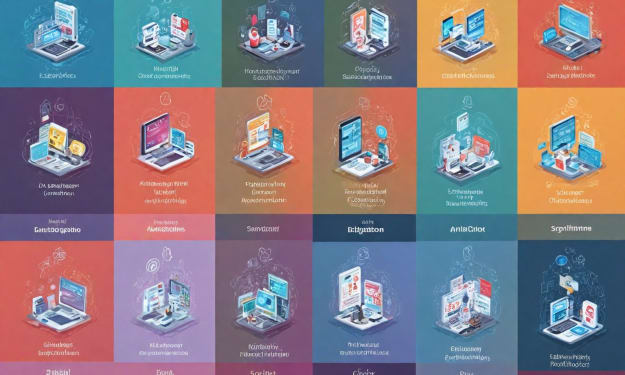"The Rise of Remote Work: Benefits and Challenges"
Benefits and Challenges of remote jobs

"The Rise of Remote Work: Benefits and Challenges"
Introduction to Remote Work
Remote work, also known as telecommuting or telework, refers to working outside of a traditional office environment, typically from home or a location of one's choice. The concept has gained widespread popularity, accelerated by technological advancements and changing workplace dynamics. Remote work offers both benefits and challenges for employers and employees alike.
Benefits of Remote Work
Remote work provides several advantages for businesses and individuals:
Flexibility and Work-Life Balance: Employees enjoy flexibility in managing their schedules, accommodating personal responsibilities, and achieving better work-life balance.
Increased Productivity: Many employees report higher productivity levels when working remotely due to reduced distractions, quieter work environments, and personalized workspaces.
Cost Savings: Businesses can save on overhead costs associated with office space, utilities, and commuting allowances. Employees benefit from reduced commuting expenses and time savings.
Talent Acquisition and Retention: Remote work expands the pool of potential candidates beyond geographical constraints, allowing businesses to attract top talent globally and improve employee retention.
Challenges of Remote Work
Despite its benefits, remote work presents challenges that organizations must address:
Communication and Collaboration: Remote teams may experience communication barriers, reduced informal interactions, and challenges in fostering teamwork and collaboration.
Work-Life Boundaries: Maintaining boundaries between work and personal life can be challenging, leading to potential burnout and difficulty disconnecting from work.
Technology and Infrastructure: Dependence on reliable internet connectivity, secure access to company systems, and adequate technology support are crucial for remote work effectiveness.
Managerial Challenges: Supervising remote teams requires effective leadership, clear expectations, and proactive support to ensure productivity, engagement, and team cohesion.
Best Practices for Successful Remote Work
To maximize the benefits of remote work and overcome challenges, organizations can implement best practices:
Establish Clear Policies and Expectations: Define remote work policies, communication protocols, and performance expectations to clarify roles and responsibilities.
Invest in Technology and Tools: Provide remote employees with access to collaborative tools (e.g., video conferencing, project management software) and technical support to facilitate seamless communication and workflow.
Promote Communication and Engagement: Schedule regular virtual meetings, encourage open communication channels, and foster virtual team-building activities to maintain connection and camaraderie among remote teams.
Support Well-being and Professional Development: Offer resources for remote employees’ well-being, including mental health support, ergonomic considerations, and opportunities for skill development and career advancement.
Future Trends in Remote Work
The future of remote work is influenced by evolving workplace trends:
Hybrid Work Models: Hybrid work arrangements combine remote work with periodic office attendance, offering flexibility while maintaining collaboration and organizational culture.
Digital Nomadism: Increasing numbers of professionals are embracing remote work to travel and work from different locations globally, blurring traditional boundaries of work and lifestyle.
Technological Advancements: Continued advancements in virtual reality (VR), augmented reality (AR), and AI-driven collaboration tools are transforming remote work capabilities and enhancing virtual experiences.
Conclusion
Remote work is reshaping the future of work, offering opportunities for flexibility, productivity, and global talent acquisition. By embracing remote work strategies, businesses can adapt to changing workforce expectations, enhance operational efficiency, and foster a more inclusive and resilient workplace culture. Addressing challenges through effective policies, technology integration, and support mechanisms enables organizations to maximize the benefits of remote work and position themselves for long-term success in a dynamic business environment.
About the Creator
Derrick Juma
I am an experienced professional copywriter and author with years of experience in digital content curation, social media strategy implementation, email design, and brand copywriting.
.
Enjoyed the story? Support the Creator.
Subscribe for free to receive all their stories in your feed. You could also pledge your support or give them a one-off tip, letting them know you appreciate their work.






Comments (1)
Keep up bro your always amaizing